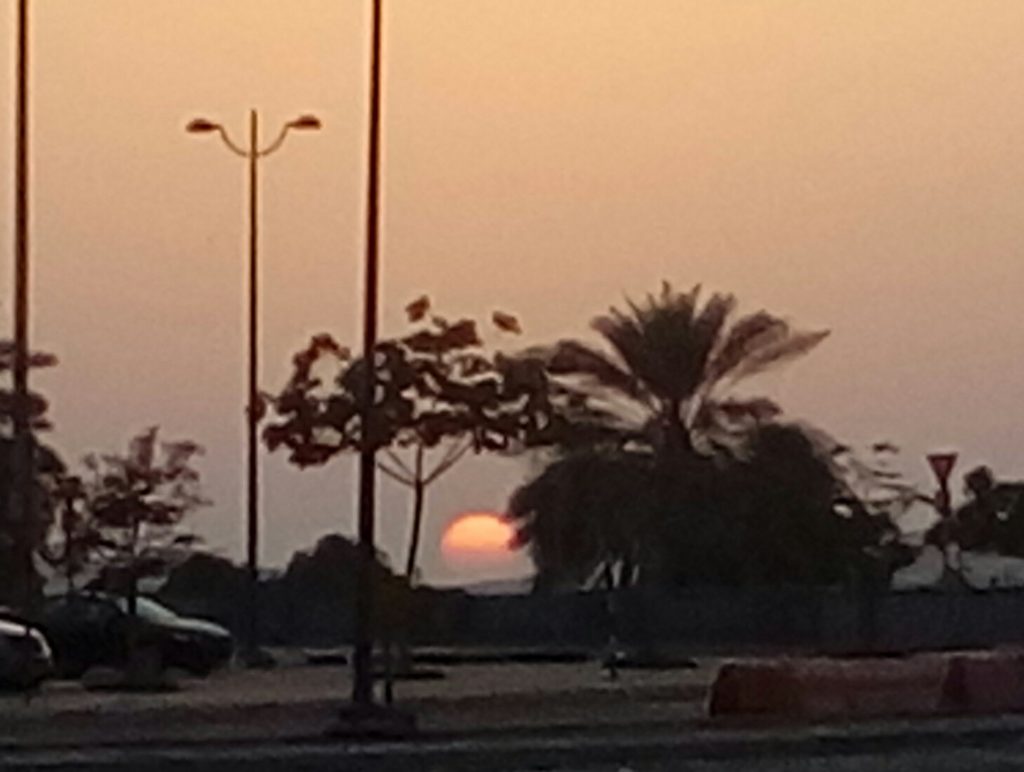Having just finished a five-year stint in Abu Dhabi, I find myself bombarded with questions about the United Arab Emirates. Generally, it comes down to three questions: What’s it like in Dubai? (Abu Dhabi and Dubai are conflated in many people’s minds, apparently), Should I visit? and Can you get a drink there?

Bars are plentiful in the UAE, although they are generally hidden away from public view inside hotels. But there are other, more important things, visitors and would-be residents ought to know about the UAE. And here they are:
+ Photography is restricted. By law, you can’t take a picture of anybody without their permission. That seems slightly absurd since all tourists have taken pictures of strangers — usually in the background of a photo of their friends or of a famous landmark. As with many other rules and regulations in the UAE, this is rarely enforced, but when it is the penalty can be severe. One expatriate was detained and then deported because she posted on social media a picture of a car parked across two disabled parking spaces. Although she blurred out the number plate, the Australian woman was deemed guilty of “insulting” the car’s owner. Photography is also banned around military and security installations. Look out for signage advising you of this.
+ The roads are dangerous. According to the World Health Organisation, you are far more likely to be involved in a traffic fatality in the UAE than in the United Kingdom, Australia or most European countries. Drivers routinely speed, tailgate, change lanes without looking or indicating. Also, the traffic rules can be confusing. For example, on the main road from Abu Dhabi to Dubai, there is a speeding “buffer”, meaning drivers can legally travel 20kph faster than the signed limit.
+ Despite what you’ve heard, there are taxes. While there is no income tax, visitors staying in hotels will pay a per-day municipal tax on arrival, and three levels of tax on their purchases, meaning a markup of 20 per cent. A value-added tax is due to be implemented next year, probably set at 5 per cent.
+ Many websites and apps are blocked and VPN use may be illegal. Gambling and porn sites, and those with certain religious and political content, cannot be accessed. Some foreign news websites are also blocked. Getting around these blocks is illegal, but the law pertaining to the use of VPNs has almost everyone confused. Voip services such as Skype and Viber may not work, an Apple’s FaceTime is blocked.
+ Cohabitation and sex outside of marriage are forbidden. By law, men and women can only live together if they are married or closely related. This rule is widely broken — and unwed tourists who spend a few days in hotel room in Dubai are unlikely to be troubled by it. However, there have been widely publicised cases where it has been harshly applied. In March, 2017, a South African man and his pregnant Ukrainian fiance were jailed for several weeks and then deported. Homosexuality is also illegal, yet many openly gay singers have performed in the UAE at the invitation of official entities. Sex workers can be found in many hotels and even on some streets despite prostitution being illegal. Some of the women are there by their own choice, others have been trafficked or lured by false promises of legitimate work.
+ Punishments are inconsistent. The legal system is bewildering to many people, including some of those who work within it. The rule of precedent does not apply in court, so people facing similar charges can get very different penalties. By Western standards, some sentences seem very lenient and others, such as the case of the pregnant woman, extraordinarily harsh. There are also stories of cases being delayed for unreasonable amounts of time and allegations of certain defendants getting favourable treatment. To be fair, authorities across the UAE are moving to streamline and otherwise improve the system, including fast-tracking judgments and simplifying punishments in cases involving tourists and petty offenders. Remember that tourists are not immune from the law and there is little your embassy can do to help you if you are arrested.
+ Watch what you wear. Beachwear is OK at the beach, but dress modestly in other public places. Tourists are not expected to follow the local dress code, but they are — rightly — expected to be respectful.
+ You may need a licence to drink. Tourists should be OK, as long as you don’t get drunk and behave badly in public. Residents of Dubai and Abu Dhabi technically require government-issued liquor licences to enable them to buy take-away alcohol from the well-disguised, but plentiful, off-licence stores. There is confusion as to whether you need a licence to drink in a bar. It’s available free online, so it’s probably worth having. The common understanding among expats is that, if you run foul of the law for one offence, police are likely to “throw the book” at you. This is not unique to the UAE.
The golden rule, of course, is to abide by the law — but that can be difficult when a) the law is not always clear and b) it is not consistently applied. As I said, moves are being made to improve the justice system, and the way it is communicated to foreigners, but tourists and expatriates are best advised to err on the side of caution.
The UAE — especially Dubai and, increasingly, Abu Dhabi — may have the beaches, bars, bells and whistles of an international tourist playground, but it is a conservative Muslim country and the laws are guided by Sharia. Understand that, and you shouldn’t have any trouble.
